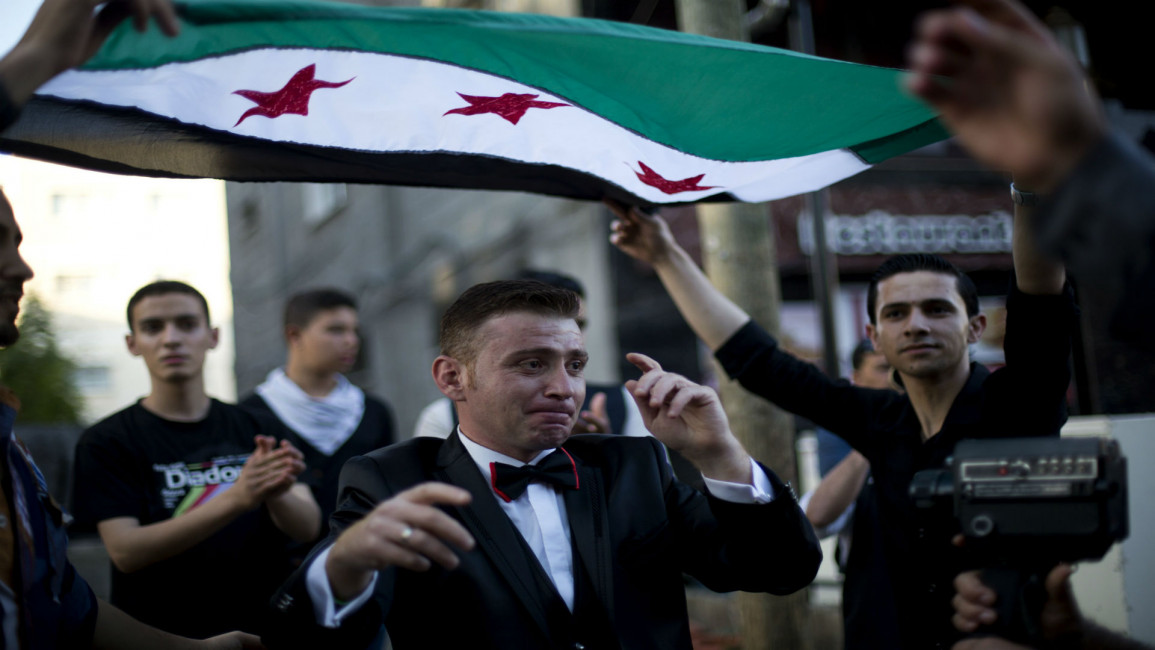
The silent despair of marriage among Syrian activists
In a wedding hall in the southern Turkish city of Gaziantep - a town once labelled "the capital of the Syrian revolution" due to the number of Syrian activists present in the city - a wedding party was being held for two Syrian activists from Aleppo.
The wedding seemed normal enough - with music, dancing and laughter, albeit a little hollow as guests attempted to leave their sorrows behind and celebrate the moment.
The wedding guests included the families of the couple and several Syrian activists and journalists who I had not seen in more than a year. A year is not a very long time, but given the rapid pace of developments it seemed like I had not seen them in a decade.
| The faces of Syrians in Gaziantep convey a harsh reality that had not been present previously - Syrians have started to lose hope |
Try as they may, the guests could not shake off the past year, especially the past few months that have driven everyone to the verge of a despair they have battled against for four long years.
Their eyes spoke of a battle finally lost.
The faces of Syrians in Gaziantep convey a harsh reality that had not been present previously - Syrians have started to lose hope.
Perhaps the rapid developments of the past year in addition to Russia's brazen intervention have worn people down and allowed hopelessness to seep into their conversations and demeanour.
In all the discussions taking place among Syrian youth living in Gaziantep, there is a complete lack of hope for the victory of the revolution - and subsequently no hope of returning home.
Instead, everyone chooses to believe the next best scenario depending on their background and affiliation - and talk of setting down in Turkey or seeking asylum in a European country is always present.
Even the wedding itself is an expression of despair - strange given that marriage is a sign of hope and stability - however it is this stability that belies the hopelessness.
During this past summer, numerous Syrian activists, revolutionaries and refugees got married in Gaziantep, but why get married now after many had put it off until after the eventual victory of the revolutionaries?
A year ago, my friends would respond to questions about marriage plans by saying that they were putting all personal objectives and goals on hold until the victory of the revolution, which keeps them physically and emotionally occupied.
My friends had dreamed of celebrating their weddings and other life events upon their return to Syria, but their change of heart and desire to "settle down" outside Syria is telling of their broken dreams.



